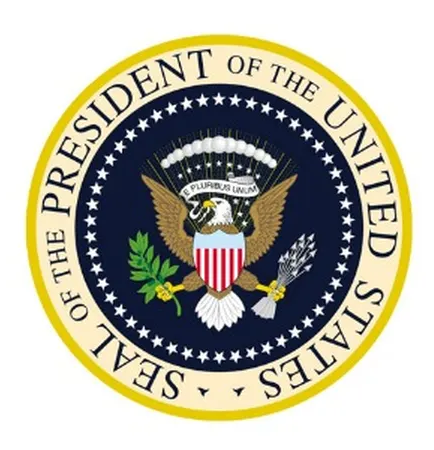Executive Order 14151, Ending Radical and Wasteful Government DEI Programs and Preferencing, January 20, 2025, 90 Federal Register 8339 (Full Document)"This article was drafted with the assistance of ChatGPT, an AI language model. All content has been reviewed and edited by Vernellia Randall to ensure accuracy and coherence."
 Summary
Summary
Executive Order 14151 eliminates all Diversity, Equity, Inclusion, and Accessibility (DEIA) programs within federal agencies. The order mandates:
- Immediate termination of all DEI-related training and initiatives in federal workplaces.
- The elimination of all DEI personnel positions within federal agencies.
- A review of federal hiring practices to ensure "merit-based hiring" replaces any "race or gender-based preferences."
- The removal of DEI-related benchmarks for federal contractors effectively ended the requirement for companies to demonstrate diversity efforts in government contract applications.
The administration argues that DEI programs promote reverse discrimination and "undermine individual merit," framing this order as a corrective measure to restore fairness and neutrality in federal hiring.
Summary Analysis: The administration frames this as a return to "merit-based hiring," but research shows that systemic biases continue to disadvantage racial minorities in employment and business opportunities.
Impact on Racial Justice
🔴 General Impact: This order fundamentally weakens federal efforts to promote workplace diversity and combat racial discrimination in employment. While proponents argue that it ensures a "colorblind" approach, in practice, it removes key mechanisms that helped counteract systemic discrimination in government hiring and contracting, potentially causing concern and urgency among the audience.
- Historical Context: DEI programs were implemented to address racial disparities in hiring, promotions, and workplace culture. Without these programs, racial inequities in employment may persist without accountability.
- Disproportionate Impact: Studies show that unconscious bias and systemic discrimination continue to affect hiring and promotions, meaning that without DEI policies, qualified minority candidates may face more barriers in securing jobs and leadership positions.
- Weakening Accountability Measures: Federal agencies will no longer be required to assess whether their policies or hiring practices disproportionately exclude racial minorities. This makes it easier for bias to operate unchecked in employment decisions.
Impact on Racial Minorities
🔴 Black and Latino Communities: The potential increased hiring disparities and fewer leadership opportunities for Black and Latino employees may invoke a sense of frustration and disappointment among the audience, fostering empathy and solidarity.
- Increased Hiring Disparities: DEI programs actively worked to reduce racial disparities in hiring, particularly in fields where Black and Latino professionals have been underrepresented. Their elimination removes hiring safeguards, making it harder for minorities to enter government jobs.
- Fewer Leadership Opportunities: Black and Latino employees often benefited from leadership development programs tied to DEI initiatives. Without these, career advancement for minorities in federal agencies may stall, reinforcing racial disparities in leadership.
🔴 Indigenous Communities:
- Loss of Federal Support in Employment: Indigenous populations have historically faced high unemployment rates and low representation in government positions. Federal DEI programs prioritized outreach to Indigenous communities for hiring and contracting, and their removal may worsen existing disparities.
- Diminished Business Opportunities: Native-owned businesses often benefited from DEI-based contracting incentives. Removing these policies may mean fewer economic opportunities for Indigenous entrepreneurs.
🔴 Asian American and Pacific Islander (AAPI) Communities:
- Reduced Anti-Discrimination Protections: The AAPI community has faced increased workplace discrimination, particularly since the rise of anti-Asian hate incidents in the 2020s. DEI programs provided resources to address racial bias in hiring and promotions. Their elimination may result in fewer protections against workplace discrimination.
- Federal Workforce Representation: AAPI workers have been historically underrepresented in high-ranking federal roles. DEI hiring initiatives encouraged agencies to diversify leadership teams, and their removal may limit career advancement for AAPI professionals.
🔴 Women of Color:
- Elimination of Intersectional Hiring Efforts: Women of color often face discrimination on multiple levels (race and gender). DEI policies helped address these disparities by creating targeted hiring and promotion programs. Without them, women of color may face greater career obstacles, particularly in male-dominated fields like STEM, law, and finance.
- Reduced Workplace Harassment Protections: Many DEI programs included anti-harassment and anti-discrimination training to prevent bias in the workplace. Without these resources, racial and gender discrimination may go unaddressed.
Broader Social & Economic Consequences
📌 Federal Workforce Representation:
- Fewer Black, Latino, Indigenous, and AAPI employees in leadership roles.
This could lead to a return to racial homogeneity in high-ranking government positions, a stark contrast to the diversity initiatives that have been in place in recent years.📌 Impact on Private Sector & DEI Programs Nationwide:
- Companies that rely on federal contracts may abandon diversity hiring efforts to avoid legal or political risk.
- Universities and other institutions may scale back DEI initiatives in fear that they will be targeted next.
📌 Public Perception & Civil Rights Backlash:
- EO 14151 has already sparked controversy among racial justice advocates, who argue that eliminating DEI programs undermines workplace equality and civil rights progress.
- Opponents of DEI see this order as a victory for "colorblind" policies, but racial justice organizations warn that it ignores existing racial inequalities rather than fixing them.
Conclusion: A Setback for Workplace & Economic Equity
📌 EO 14151 represents one of the most extensive federal rollbacks of DEI programs in U.S. history.
📌 By eliminating all DEI programs in federal agencies, the order removes mechanisms that have been used to counteract racial discrimination and promote equal opportunities in hiring and contracting.
📌 The administration frames this as a return to "merit-based hiring," but research shows that systemic biases continue to disadvantage racial minorities in employment and business opportunities.
📌 Without proactive diversity policies, the order risks deepening racial disparities in government employment and contracting, reinforcing existing inequalities rather than addressing them.


